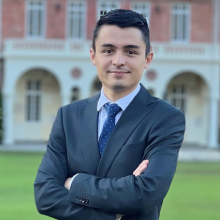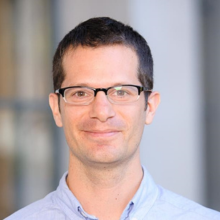
Overview
By 2030, over half of the world's extreme poor will reside in fragile, conflict-affected, and violent countries (FCV), presenting substantial obstacles to poverty eradication and sustainable development. The Development Impact Group's FCV program aims to identify, develop, and test interventions that empower households to safeguard against fragility.
The team’s extensive experience in fragile contexts has helped forge valuable partnerships with key actors. Notably, collaborations with the Evidence 4Peace Program enabled the implementation of over 30 impact evaluations focused on FCV, primarily funded by the UK Foreign, Commonwealth, and Development Office (FCDO) from 2012 to 2019. Furthermore, Development Impact Group FCV maintains ongoing collaborations with the World Food Programme (WFP) and the Partnership for Economic Inclusion (PEI).
Themes
To achieve its aims, Development Impact Group FCV is targeting three key focus areas to support solution development and implementation:
Building resilience to shocks and reducing the risks of conflict
Households are continuously exposed to shocks and stressors like conflict, violent extremism, climate change, and migration, hindering their escape from extreme poverty and their progress toward prosperity. The Development Impact Goup seeks to mitigate these risks by helping households break the cycle of poverty and prevent escalating conflicts. This is achieved through the identification, development, and testing of interventions that empower individuals to anticipate and adapt to risks. Currently, the Development Impact Group's portfolio covers various programs that address different sources of fragility, including conflict and climate change.
Building human capital and sustainable livelihoods
Supporting livelihoods in fragile and conflict-affected settings is crucial for preventing and reducing conflict and violence. The Development Impact Group focuses on studying the impact of key social protection policies in fragile contexts, such as employment, financial services, cash transfers, and economic inclusion packages.
Current research includes assessing the effectiveness of scalable employment initiatives in Bangladesh, studying the impacts of livelihood support programs on displaced and host populations in Niger, and evaluating government-led economic inclusion programs' impact and cost-effectiveness at scale.
Improving physical and social connectivity
In fragile, conflict-affected environments, maintaining social cohesion and economic stability is challenging, impacting national and local systems. The Development Impact Group's research examines the economic effects of this instability and suggests ways to strengthen systems. This includes building stronger infrastructure and institutions (vertical linkages) and fostering social connections (horizontal linkages) at both national and local levels to promote recovery and resilience.
Partnerships
The Development Impact Group actively seeks strategic partnerships across sectors to address pressing challenges. The Development Impact Group, the Sahel Country Management Unit (CMU), and the Fragility, Conflict, and Violence (FCV) Group have established a multi-sector program to address key FCV themes using "Trial-and-Adopt" Impact Evaluation (IE). This collaboration focuses on forced displacement, service delivery continuity and capacity, social cohesion, and livelihoods and markets. By leveraging sector-specific objectives and targeting core FCV issues, this innovative program aims to enhance World Bank impacts in FCV contexts. Additionally, a partnership with the World Food Programme's (WFP) Office of Evaluation (OEV) has resulted in 20 impact evaluations since 2019, covering areas such as cash-based transfers, women's empowerment, climate resilience, and anticipatory shock-response programs. This successful collaboration advances corporate-level partnership objectives and contributes to knowledge-building on humanitarian concerns in fragile contexts. To learn more about our partnership with WFP click here.




